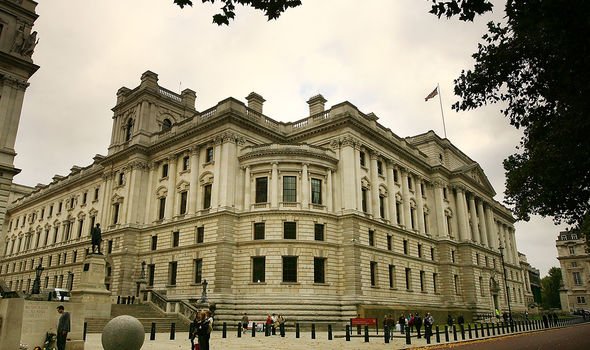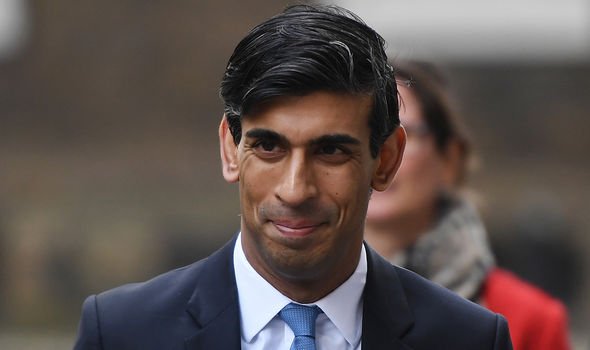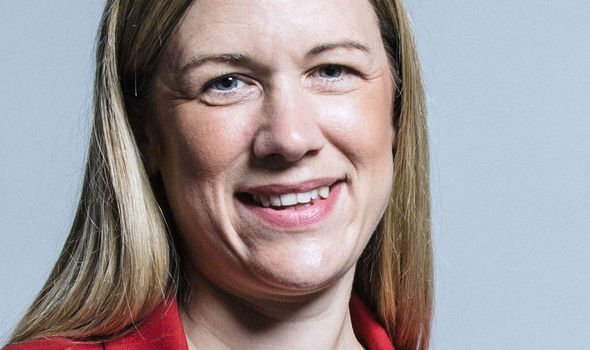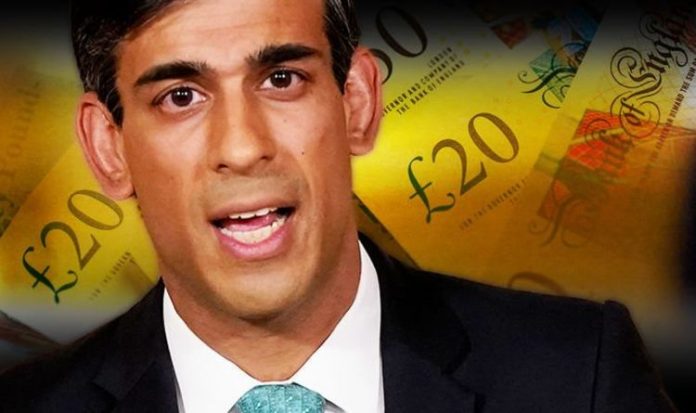The Bounce Back Loan Scheme (BBLS) was introduced by the Government at the end of May to help small and medium-sized businesses affected by the coronavirus crisis to secure loans of up to £50,000. The minimum amount that a business can apply for is £2,000 and the loan term will be up to six years. BBLS is administered by the British Business Bank and made available to businesses via accredited lenders.
The loan is aimed at sole traders and small businesses – with fewer than 10 employees – and is supposed to be quicker and easier to apply for than the Coronavirus Business Interruption Loan Scheme (CBILS).
This Government-backed credit, which is available until November 30, is seen as a lifeline for thousands of sole traders and small businesses nationwide, from plumbers to coffee shops and garages to hairdressers.
However, according to research carried out by Express.co.uk, the scheme could see women being unfairly discriminated and financially penalised by the accredited lenders.
A former City worker, who wishes to remain anonymous, said: “I think women have been disproportionately hit by the pandemic.

Rishi Sunak’s Bounce Back Loan Scheme embroiled in gender discrimination row (Image: GETTY)

City of London (Image: GETTY)
“And I think they may have been discriminated against – particularly when it comes to the Bounce Back Loan Scheme.
“My husband applied after me and he has already got the money in his account. Ten days later, and I am still waiting.
“I have a better credit rating than him, I earn the same amount of money that he does. We applied to the same bank.”
She added: “I would love to get my hands on the data.
“I am not accusing anyone right now, but because so many women are solo entrepreneurs due to lifestyle and care responsibilities, a lot of them were already not eligible for the Self-employment Income Support Scheme.
“And then I am wondering whether the Bounce Back Scheme Loan is just the latest addition.”
JUST IN: Marine Le Pen’s niece could topple Macron in 2022

HM Treasury (Image: GETTY)
Prominent economist Richard Murphy echoed the former City worker’s claims, suggesting there is bias among major lenders.
He told Express.co.uk: “There is sexism inside the loan system.
“I have definitely heard it.
“They are not making a fuss for no reason, let me say that.
“There is clear evidence that the banking system doesn’t trust women.
“It doesn’t give as much money to women as it does to men.
“It doesn’t agree to loans from women applicants. It is biased against women.”
He added: “From my past, there was a time when I started a firm of accountants in 1985. By 1990, the firm had 15 people in it. I was the only man.
“They were equal partners.
“But we saw that problem. I am willing to believe that.”
DON’T MISS:
Dominic Cummings’ brutal critique of Merkel’s influence [INSIGHT]
Boris Johnson’s no deal speech shows PM is following Thatcher’s advice [ANALYSIS]
Ireland accused of ‘crushing’ Brexit dream by not joining UK [REVEALED]

Chancellor of the Exchequer Rishi Sunak (Image: GETTY)
Express.co.uk asked the Treasury, through a Freedom of Information Request, whether it was possible to retrieve a gender breakdown of the applications to the Bounce Back Loans Scheme.
However, the Treasury confirmed it does not hold information on the gender breakdown of applications.
Sonali Parekh, Policy Director at the Federation of Small Businesses, insisted the Government, the Treasury and the regulatory bodies should have been monitoring the BBSL’s funding.
She said: “They need to make sure there are no disparities in the way that funding has been distributed.
“Whether it is by gender or ethnic minority background.
“Knowing there can be systematic issues regarding access to finance, it is important that a state-funded emergency scheme can break that data down and identify if there is a problem or not.”
The BBLS is not the only Government scheme that has received criticism during the coronavirus crisis.
Self-employed mothers who have taken maternity leave in the last four years also appear to have been financially penalised.

Labour MP Ellie Reeves (Image: CHRIS MCANDREW)
Chancellor Rishi Sunak’s support package for sole traders – the Self-employment Income Support Scheme (SEISS) – gives a taxable grant of up to 80 percent of trading profit, up to £2,500 per month, for three months, to people who have been unable to work or have lost income since the lockdown in March.
However, an estimated 75,000 self-employed women who had time off to have a baby between April 2016 and April 2019 have been short-changed compared to other applicants because of the way the grant is calculated.
Businesswomen said they received between a third and a half reduction, sometimes even more, because profits are averaged over three years by HMRC – and periods of maternity leave are not exempt, while their maternity pay is not classed as income.
Labour MP Ellie Reeves questioned the Chancellor about the policy in Parliament in May, but he claimed that the system was fair and provided a “level playing field”.
He told the House of Commons: “For all sorts of reasons people have ups and down and variations in their earnings, whether through maternity, ill health or others.
“What we have done to deal with this is provide an average of income of up to three years, on a look-back basis, to smooth all those ups and downs in all people’s income.”
Ms Reeves said that the Chancellor’s reply had “completely missed the point”.
She said: “This discriminates against women on lower incomes in particular, penalises families with young children, and exacerbates the gender pay gap.”







